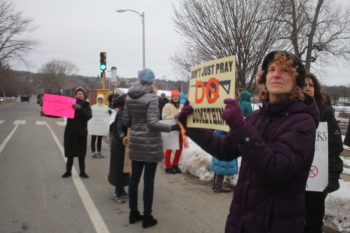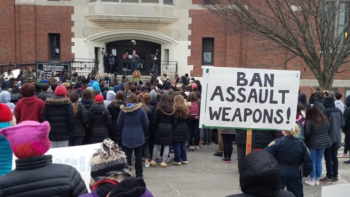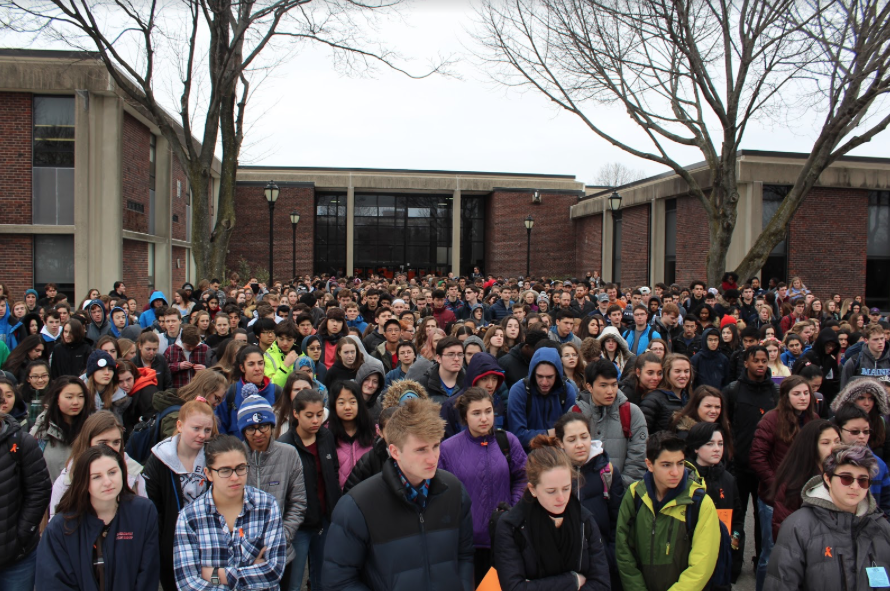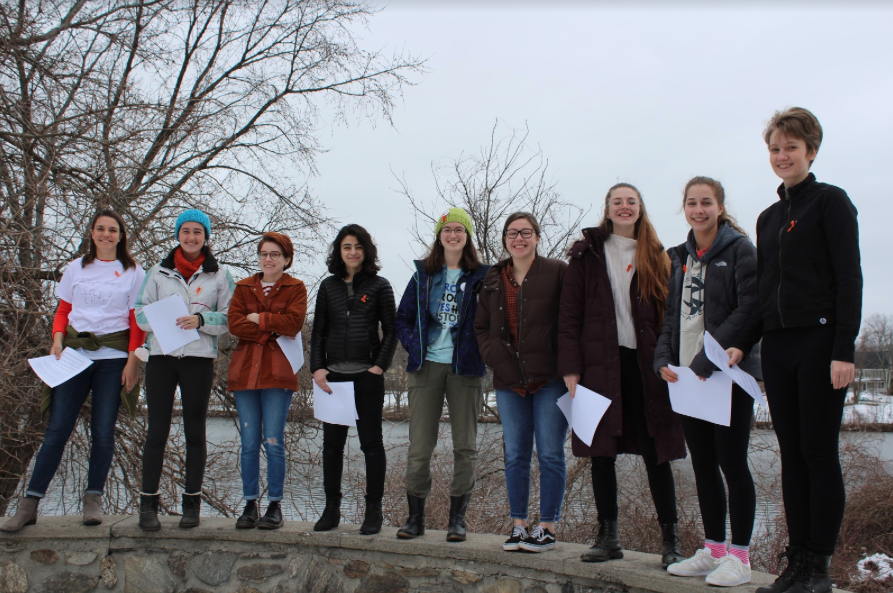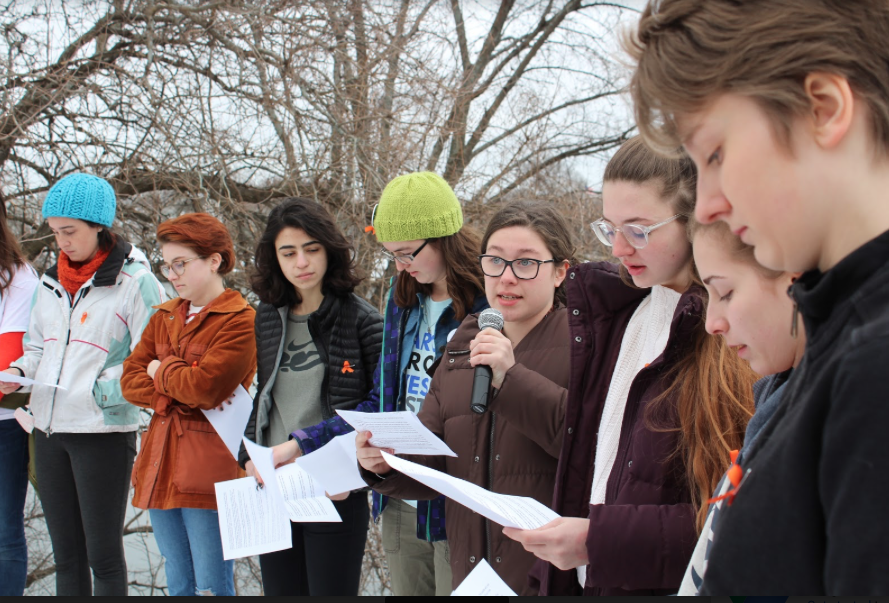Photo: Town bylaws.
7 p.m.: Hello, and welcome to the first night of the 2018 Belmont annual Town Meeting, which will be about non-budgetary articles. It’s nice to see a large crowd in the Belmont High School auditorium for what will be a fairly straightforward list of articles – nothing too controversial tonight – so we might be able to get out of Dodge by the end of both the Bruins and Celtics playoff games.
So here is tonight’s agenda:
Article 1: Order of the articles
Article 2: Authorization to represent the town’s legal interests
Article 3: Amend the general bylaws: Establish the Thaddeus Frost House Historic District
Article 4: Amend zoning bylaws: General Residence Zoning District, Sunset Clause
Article 5: Amend zoning bylaws: General Residence Zoning District
Article 6: Citizen’s Petition: Single-use plastic check-out bags [Withdrawn]
Article 7: Amends general bylaws: Plastic Bags
Article 10: The fiscal 2019 Community Preservation Committee budget and projects
- $103,000 to the Belmont Veterans Memorial.
- $5,000 for architectural drawings for the music bandstand at Payson Park.
- $25,000 for design documents and bid specifications for the Town Field playground.
- $780,087 for the construction of Grove Street Park Intergenerational Walking Path.
- $250,000 to fund eligible commitments by the Belmont Housing Trust that would increase housing units where new housing is being built, provide incentives to developers to develop affordable housing units, or fund pre-development work to determine if sites are suitable for community housing development.
- $175,000 to stabilize the McLean Barn.
7:05 p.m.: We are right on Belmont time. Moderator Mike Widmer gets the meeting underway. Pastor Butler from the Open Door Church provides the invocation and the Boy Scouts presents the flag. The Chenery Middle School chorus sings the national anthem. The 30 (!) new town meeting members are sworn in. Nice number.
7:20 p.m.: Widmer said he hopes to get through the non-budgetary articles in three nights but that appears to be a hopeful wish. The under/over of three nights to complete the articles is one-in-five.
The long-serving members are recognized including Marty Cohen with 43 years. Marty said four years ago he gave his retirement speech and he’s giving another one. I’ve enjoyed it very much not as a hobby and a duty but something you want to do well.” Standing O.
Mark Paolillo makes a wonderful speech at the reading of the proclamation for the late Bill Skelley.
Craig Spinale, the Belmont Light interim GM, gives an update on the electrical distribution plan including the completion of the Blair Pond substation and the infrastructure – power lines – are (near) completed which will allow for the decommissioning of the three older sub-station. The substations will take up to five years for the one across from Town Hall and 6 to 10 for the other two.
Bruins, Tampa Bay, 0-0 midway through the first period.
Patrice Garvin, our new town administrator, gets a big hand after being introduced by Selectmen chair Adam Dash.
7:40 p.m.: The first article that requires a vote is up and it’s the Thaddeus Frost House Historic District, introduced by Mike Chesson, Pct. 4. The Frost House is a circa 1805 Federalist farmhouse at 291 Brighton St., one of the last in Belmont. The owner wants to protect the exterior if it’s sold in the future. Selectmen unanimously voted favorably. It will be the fourth district in town. This article is well presented by the Historic District Commission with a combination of facts and history. Needs a two-thirds vote. The owner, Athena McInnis, gives her support to the measure. The first question from Warrant Committee chair Roy Epstein on the future use of Community Preservation Act funds to repair the house.
The vote is up and passes overwhelmingly, 237-15. Passes
7:58 p.m.: Steve Pinkerton of the Planning Board presents Article 4, which is the sunset clause of the General Residence Zoning District. This article will allow the restrictions on new construction on single and two family structures to limit the size and mass so they can be consistent with what’s in the neighborhood. Pinkerton said the bylaw has been very successful – developers have been working with the town – over the past three years so it should continue by striking the sunset clause. “Things are going quite well,” said Pinkerton.
Kevin Cunningham, Pct. 4, said he supports eliminating the sunset language because if it doesn’t, the entire bylaw will end which is not what anyone wants. No objection to the action.
The vote is up and it passes with only 16 “no”s with 238 in favor.
8:11 p.m.: Article 5 is up now. This article is known as the “porch and dormer” article which is more of a “housekeeping” issue. Since the zoning bylaw requires that any changes to a non-conforming structure go through a special permit process, small and non-complicated improvements have to go through the cumbersome site and design review in the Planning Board. This article will ship all smaller items – increases under 300 sq.-ft. – to the zoning board of appeals while the Planning Board will have more time to investigate larger additions and such.
Bruins/Lightning 1-1 after one; Celtics/Sixers underway.
Jack Weis, Pct. 2, asked if the ZBA knows they are getting all this new work and will the decisions have the same care and degree of involvement as with the Planning Board. “Yes,” said Edmund Starzec of the Planning Board. Bob McGaw, Pct 1, is acting as Town Meeting copy editor finding errors in the wording in the articles for the second time. Now Roy Epstein, chair of the Warrant Committee, is also finding his own errors. Ellen Cushman, Town Clerk, informs the third challenge to a word (by-law vs. bylaw) that it took her a few years to realize what was the correct.
It passes 242-9.
8:25 p.m., The plastic bag article. The reason article 6 was dismissed. This bylaw will end the use of plastic bags in Belmont, with Star Market, Nov. 1, being the first to end its use with smaller retailers given a longer time frame, until Feb. 2019. Did you know 7.3 million bags are used by Belmont residents or about 300 per person? Don Mercier, Pct. 8, said that plastic bags cause less stress than cotton/paper bags. Mercier is making the case for the plastic industry. Not so sure he has much support although he has the data holding up his argument. He said the bylaw might seem like a good thing, but it could actually be detrimental to the environment. Bonnie Friedman, Pct. 3, said the town should support the use of compostable cups and paper by retailers. Anne-Marie Lambert, Pct. 8, asked if the town would have a campaign for behavioral change to go along with the ban. Sylvia Cruz, Pct. 5, asked what the impact on businesses in other towns. Campaigner Linda Levin-Scherz, Pct. 2, said they have heard from those businesses who said “Armageddon” didn’t come. Melissa MacIntyre, Pct. 8, said she’s buying eight reusable bags
The vote is in and it passes 228-32.
9 p.m.: Moderator Mike Widmer wanted to stop for the night but the members immediately rattled the cage in disapproval. Widmer decided to throw the crowd article 8 and 9 to satisfy their appetite.
Celtics by 10 over the Sixers with a minute left in the second; Bruins down to the Lightning, 2-1, after two.
9:13 p.m.: Marijuana tonight! Widmer goes with the two narrow pot-related articles: first up is the moratorium, Planning Chair Charles Clark is asking the town meeting to delay adult dope use facilities until Dec. 31, 2018 because there is a great deal of confusion – well, it IS marijuana – from the state and the law is very complex that has yet to be resolved. Clark said he did not feel that they had sufficient information to make zoning decision, protecting the town going forward. Mark Paolillo said more time is needed to discuss “time, place and manner” with town residents. Anne Mahon, pct. 4, believes a moratorium is just another delaying tactic. Two-thirds required. The first vote on pot is … 190 to 52.
9:26 p.m.: Article 9 is a three percent town tax on grass and product sales. Mercier said the town might be breaking federal law to accept the money. George Hall, town counsel, said he didn’t see the feds going after the state for taking in revenue. Emma Thurston, pct. 1, asked that the tax is not directed towards any specific expenditure. Hall said it goes into the general funds. Bob McLaughlin, as always, makes his point saying the moderator should ask only those in the hall who are against the tax to speak (figuring there was less of them) because the Red Sox, Bruins and Celtics were playing! The crowd cheers!
The vote is taken: 231- 7.

